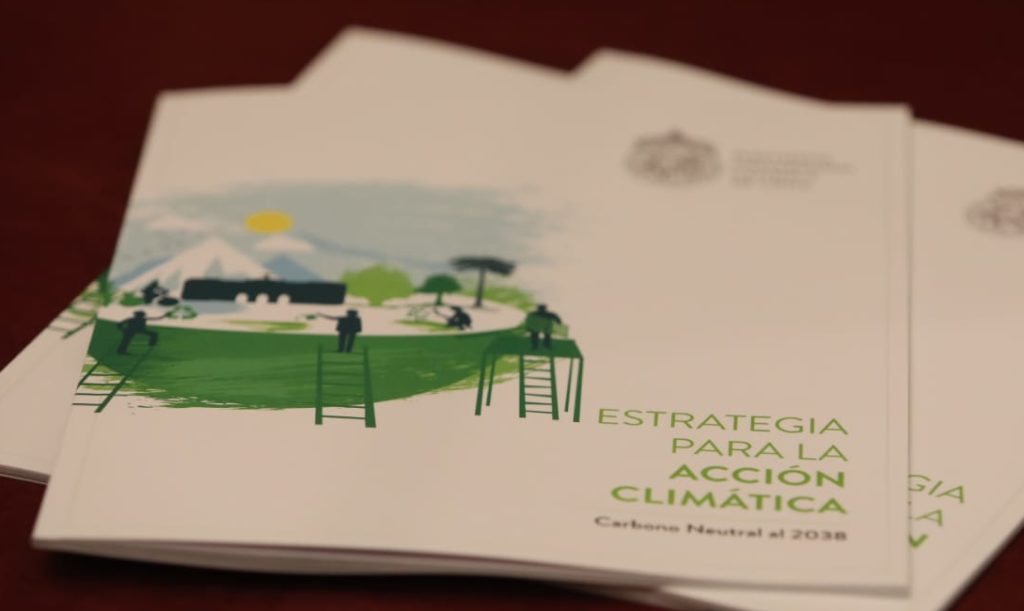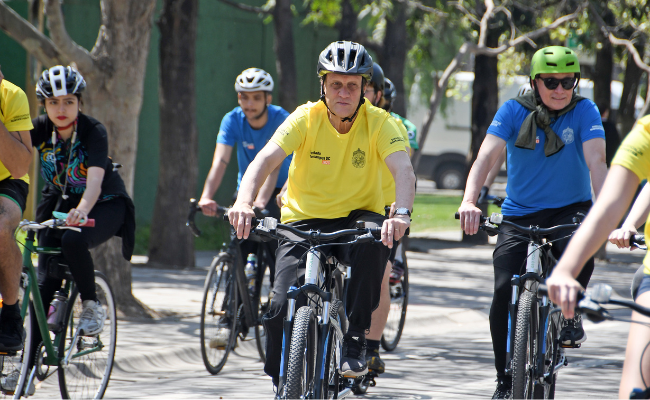Pathways to Carbon Neutrality: UC Chile Climate Action Strategy
The current global climate crisis, in which global warming is on the verge of exceeding the 1.5°C threshold this century, necessitates immediate action. In this urgent context, UC Chile joined the global challenge of halting the progress of climate change, committing to become a carbon-neutral university by 2038, coinciding with its 150th anniversary and advancing 12 years ahead of the national target planned for the year 2050.

Since 2020, extensive work has been carried out in 10 thematic areas with the participation of academics, administrative staff, and students, guided by coordinators and the UC Climate Action Council, with the aim of developing the UC Climate Action Strategy presented in 2023.
“We know that significant solutions must primarily come from high-level political decisions, but we also understand that every effort counts. UC Chile’s commitment to reducing pollution is creating a new culture within the university and, most importantly, a culture that impacts society as a whole.”
UC Chile Rector Ignacio Sánchez (pictured above in yellow)
To guide the strategy development process, the university created a Climate Action Council, which includes directors of management units, research centers, academics, and students. This council has the responsibility to monitor progress and guide next steps in finding new solutions to reduce institutional carbon emissions.
The Strategy encompasses the implementation of 18 projects related to energy and construction, transportation and travel, water and biodiversity, waste, education, research, and culture. While the main objective is to achieve carbon neutrality, the university decided to incorporate components of adaptation and resilience, as well as aspects of education, research, and culture inherent to a higher education institution.

Several projects have been implemented, such as the creation of a new energy management system and initiatives to promote electromobility. Soon, a competition for energy efficiency for administrative and academic units will be launched. Throughout 2022 and 2023, participatory forestations were held on the San Joaquín campus, the largest campus at UC Chile and visited by over 30,000 people daily. Six hundred members of the UC community participated.
Travel and daily transportation account for over 70% of the university’s carbon footprint. To address these issues, the Global Mobility Office and the Sustainability Office have initiated joint efforts to reduce the impact of global mobility, implementing initiatives such as a Green Guide for exchange students, a new Seed Fund financed by student exchange trips, and a forthcoming platform for travel registration and carbon footprint calculation.
 Currently, the university is assessing progress in implementing the strategy and exploring additional projects that contribute to climate action. Additionally, it is consistently implementing programs, activities, and campaigns aimed at fostering sustainability awareness within the university.
Currently, the university is assessing progress in implementing the strategy and exploring additional projects that contribute to climate action. Additionally, it is consistently implementing programs, activities, and campaigns aimed at fostering sustainability awareness within the university.
